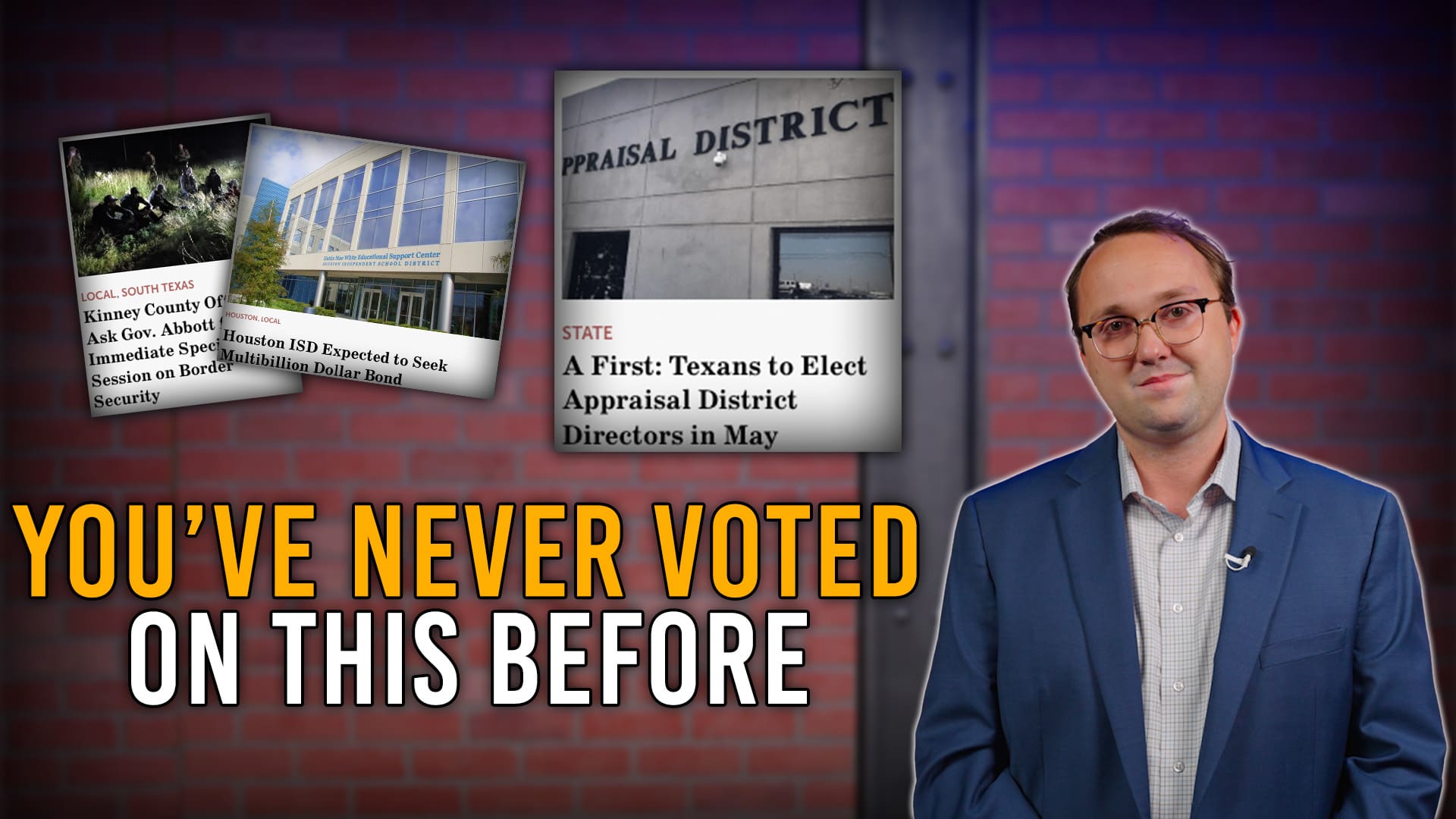Taxpayers have grown accustomed to the deceptive tactics that government entities employ when issuing debt or increasing taxes. School districts, for instance, are known to move polling locations to increase favorable outcomes and even to mislead voters about what’s on the ballot. The latest trend is holding tax ratification elections (TRE) with little advanced notice, when voters aren’t paying attention.
Klein ISD, a Houston-area school district of 50,000, decided to call a tax ratification election when voters least suspected it: the end of the school year. In June, KISD hopes voters will approve a nine cent increase to help boost its reserves for the next few years.
After receiving certified appraisal rolls, school districts calculate two tax rates – the effective tax rate and the rollback rate. The rollback rate is the maximum amount an entity can raise taxes without seeking voter approval. If the entity wants to adopt a rate above the rollback rate, it must hold a tax ratification election to adopt that rate.
KISD said that if the TRE is defeated by voters, they’ll have to find the money to maintain their fund balance and pursue security projects through cuts. Taxpayers have to make cuts when their expenses exceed their income; there’s no reason the school district shouldn’t have to do the same.
If approved, KISD’s new overall tax rate would increase to $1.52 per $100. According to the district’s estimates, taxpayers with a home valued at $100,000—far below the cost of the average residential property in KISD—would see an annual increase of almost $70 per year. However, this is just the direct increase and doesn’t account for rising property values, which drive up the tax bill even higher. Harris County property owners have seen their home values increase by an average of 36 percent over the last three years.
To add insult to injury, the district is asking taxpayers for more money when they haven’t demonstrated any effort to address their mounting debt.
KISD has about $1.4 billion in outstanding tax-supported debt, which is almost $30,000 per student. According to the state Comptroller, KISD’s tax-supported debt per student increased 196 percent from the 2007-08 school year to the 2015-16 school year, giving Klein one of the highest per student debts in all of Texas among districts of similar size.
The district is required to maintain a fund balance, or reserves, of 25 percent. Their current balance is $117 million, or 26 percent, but the district claims the balance will drop to nine percent within three years, leaving little reserve money for operating expenses if they don’t generate over $30 million in revenue or savings. Yet instead of trying to save and cut spending, they choose to pocket more from taxpayers.
KISD selected June 16 for the election date and gave little advanced notice to the public: the board just brought up the issue for consideration in mid-May.
They are joining more than 500 school districts that have called a TRE since 2006. Voters in the district should take this opportunity to oppose the district’s unnecessary spending and mounting debt. While this isn’t a debt election, there’s little doubt that KISD will be coming to taxpayers asking for a debt approval in the foreseeable future, adding even more to the ever-increasing property taxes.




